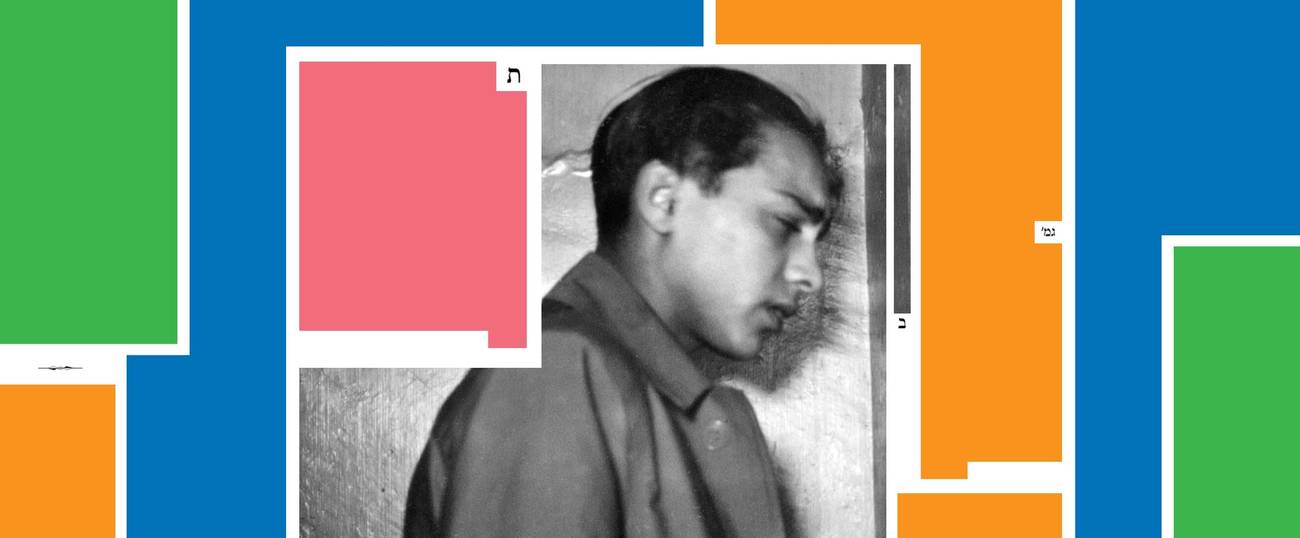Disobey
In this week’s ‘Daf Yomi’ Talmud study, how are individual Jews supposed to act when a religious court makes a ‘manifestly illegal’ ruling or unjust order?




Literary critic Adam Kirsch is reading a page of Talmud a day, along with Jews around the world.
This week, Daf Yomi readers began Tractate Horayot, the last tractate in Seder Nezikin, the division of the Talmud that deals with civil and criminal law. Horayot, whose name means “decisions,” is a very short tractate—just 14 pages long—and it deals with a narrow but important area of Jewish law: namely, what to do when a court issues an erroneous judgment. The short answer is that courts that mistakenly permit a forbidden act, and thereby encourage the Jewish people to sin, are liable to bring a sacrifice in atonement. But, of course, matters are never quite so simple in the Talmud, and the discussion ends up touching on basic questions about law and justice: above all, the question of when a person is obligated to obey a mistaken or unjust authority.
The biblical basis for this tractate is found in Leviticus 4, which gives instructions for what to do if “the entire assembly of Israel shall act unwittingly, and the matter is hidden from the eyes of the congregation, and they performed one of the mitzvot that the Lord has commanded not to be done and are guilty.” The only way such a communal error could occur, the rabbis reason, is if the people are led astray by a court that issues an incorrect ruling—for instance, allowing people to eat a certain portion of animal fat that is actually not fit for consumption. The question in such a case is who bears responsibility for the sin: Is it the court, because it gave people wrong instructions, or is it the people who actually committed the sin? Which party is obligated to bring an atonement offering in the Temple?
The basic principle is set forth in the Mishna in Horayot 2a: an individual is exempt from guilt if he “associated his action with the ruling of the court.” In other words, a person who obeys a duly constituted authority is not liable for making a mistake. But this does not apply to everyone, the Mishna explains. If there is a judge on a court who believes that his colleagues are making a mistaken ruling, yet he goes on to obey the ruling and so commits a sin, he is personally responsible for bringing an offering. That is because he did not “associate his action with the ruling of the court”: He knew the act in question was wrong but did it anyway.
This raises a fundamental question about the nature of judicial authority in Jewish law. No legal system can function unless its judgments command obedience, even among those who disagree with them. If a rabbi does not have to obey the rulings of the majority of his colleagues, then you have a recipe for endless schism, which would endanger the very existence of Judaism as a coherent tradition. That is why, as the Gemara goes on to point out, there is a “mitzvah of heeding the statements of the Sages.” The biblical basis for this mitzvah is Deuteronomy 17:11, which commands obedience to judges: “You shall not turn aside from the matter that they shall declare unto you, to the right nor to the left.” Yet here the Talmud seems to say that one who heeds the statements of the Sages, even though he believes them to be mistaken, will be personally liable for following them into error. So which is it: Is a rabbi obliged to defer to a majority of his colleagues or not?
The Talmud offers no clear answer. Here it seems to suggest that such a rabbi is obliged to become a conscientious objector; but in Tractate Sanhedrin, we learned that a “rebellious elder,” a Sage who refuses to follow the majority, is liable to the death penalty. Commentators puzzled over this discrepancy, with some suggesting that there was a difference between theory and practice. Perhaps a rabbi who is convinced that his colleagues made a mistake is obliged to repeat their ruling in public, in order to prevent a schism, but must disobey that same ruling when it comes to his actual behavior.
Here the Talmud deals with the obligation of judges, who are supposed to be experts in Jewish law, rather than with the obligation of ordinary people. When it comes to recondite legal questions, such as identifying forbidden and permitted fats, only experts can judge, and the ordinary Jew has no choice but to obey. There are, of course, exceptions to this rule. For instance, the judges are obliged to bring an offering only if the majority of the community sins in accordance with their erroneous judgment. If only a minority of the community sins, then each member of the minority is individually responsible and must bring his own sacrifice.
The really interesting legal and moral question, however, is whether there are some issues so black-and-white that a mistaken judgment will be obvious to every Jew, not just experts. Is “just following orders” always a defense against a sin or crime? Put this way, the question inevitably reminds us of modern debates about war crimes, and the obligation of soldiers to disobey an unjust order—though this is quite far from what the rabbis had in mind. In Israel, this issue was hotly debated in the wake of a notorious massacre at Kfar Kassem, in 1956, when Israeli soldiers killed 47 Arab civilians who had unwittingly violated a curfew.
When the soldiers were brought to trial, the Supreme Court issued a landmark ruling that orders must be disobeyed if they were “manifestly illegal”: “The hallmark of manifest illegality is that it must wave like a black flag over the given order, a warning that says: ‘forbidden!’ Not formal illegality, obscure or partially obscure, not illegality that can be discerned only by legal scholars, is important here, but rather, the clear and obvious violation of law,” the court wrote. (Accordingly, the soldiers responsible for Kfar Kassem were convicted, though they would be pardoned and released after serving just a few years in prison.)
In its very different terminology, the Talmud also raises the question of “manifest illegality.” What happens if a court issues a ruling that is so blatantly at odds with the plain words of the Torah that anyone should be able to see it is incorrect? The Talmud offers examples: What if the court rules that “there is no prohibition against engaging in intercourse with a menstruating woman” or “there is no prohibition against labor on Shabbat”? These are matters of Jewish law that should be familiar even to children: “It is a topic that you could go learn in a children’s school.”
To put it another way, they are matters that even Sadducees would understand. The Sadducees, a Second Temple-era religious faction, rejected the Oral Law and believed that only the plain meaning of the Written Torah should be binding. For this reason, the rabbis—who of course upheld the Oral Law, on which the Mishna and the Talmud are based—thought of the Sadducees as dangerous heretics. At various moments in the Talmud, there are descriptions of heated debates with the Sadducees—for instance, in Tractate Yoma, we learn that certain actions performed by the High Priest on Yom Kippur could be taken as signs of secret Sadducee leanings.
If even a Sadducee could determine that a court’s ruling was wrong, then, the rabbis believed it should be obvious to every Jew—it had a “black flag” over it. Such rulings are automatically invalid. This leads to the paradoxical conclusion, however, that a court which issues a blatantly incorrect ruling does not have to bring an atonement, because in effect it did not make a mistake; it actually failed to judge at all. Though the Talmud doesn’t say so explicitly, it would seem to follow that ordinary Jews who followed such a ruling—for instance, violating Shabbat because the court said it was all right—would be individually responsible for making atonement. For learned people and ordinary Jews alike, law is not a matter of blind obedience to authority; everyone is expected to have a basic sense of right and wrong.
***
Adam Kirsch embarked on the Daf Yomi cycle of daily Talmud study in August 2012. To catch up on the complete archive, click here.
Adam Kirsch is a poet and literary critic, whose books include The People and the Books: 18 Classics of Jewish Literature.